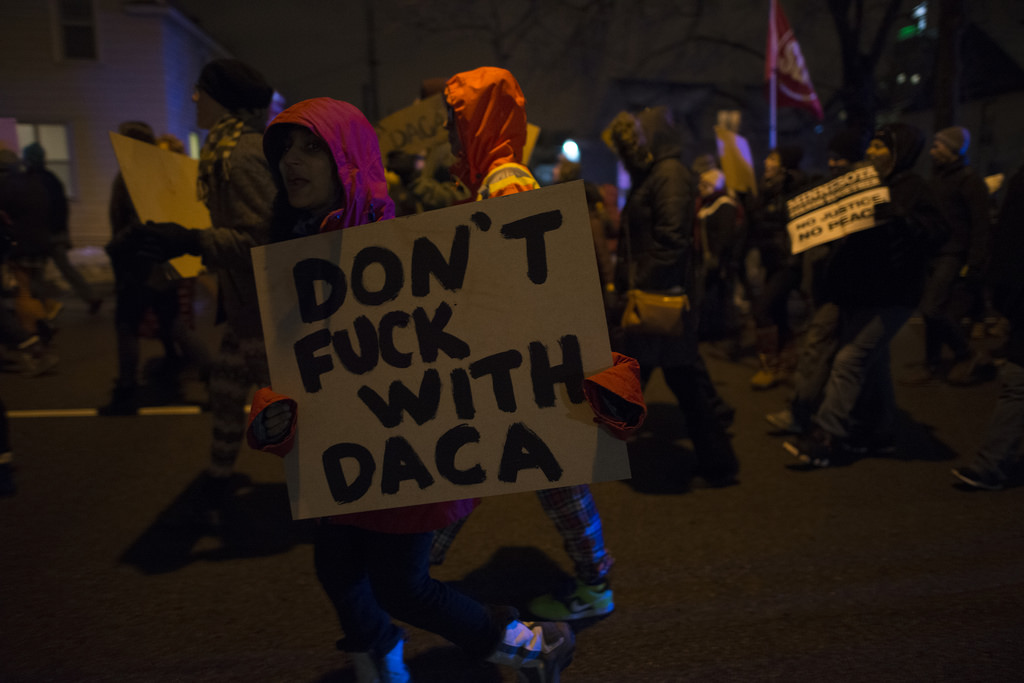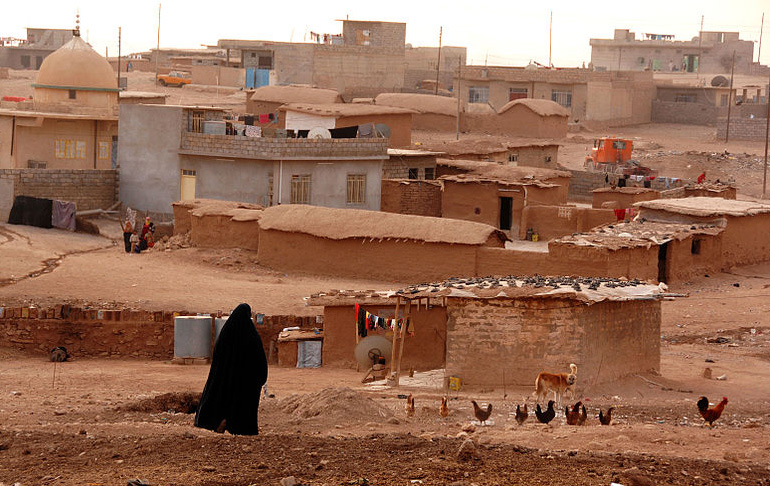Trump administration ends Obama-era immigration policy
The Trump administration will rescind the Deferred Action for Childhood Arrivals program, according to an announcement this morning from Attorney General Jeff Sessions at the U.S. Department of Justice.
“I am here today to announce that the program known as DACA that was effectuated under the Obama administration is being rescinded,” Sessions said.
Since former U.S. President Barack Obama introduced DACA, the program has prevented the deportation of almost 800,000 undocumented immigrants brought to the U.S. as children. Oregon is currently home to about 11,000 DACA participants and about 80 DACA students attend Portland Sate.

Trump’s plan outlines a DACA phaseout over the next six months. In the meantime, Congress officials could pass legislation to change DACA’s outcome. Lawmakers have until March 5, 2018.
Trump directed a statement toward Congress members in a tweet early Tuesday morning, to “get ready to do your job—DACA!”
Congress, get ready to do your job – DACA!
— Donald J. Trump (@realDonaldTrump) September 5, 2017
According to a CNN report, “If Congress were not to act, and DACA begins to expire, nearly 300,000 people could begin to lose their status in 2018, and more than 320,000 would lose their status from January to August 2019. More than 200,000 recipients have their DACA expiring in the window that DHS will allow renewal.”
Portlanders rally for DACA in the Park Blocks
Several hundred people gathered in the PSU Park Blocks at 10 a.m. today for a ‘Defend DACA’ press conference and rally organized by CAUSA Oregon, One Oregon and Oregon DACA Coalition. Supporters spoke out in support of immigrant rights in Oregon and beyond.
Dr. Carmen Suarez, Vice President of PSU’s Office of Diversity & Inclusion, attended the rally and said she remains hopeful in the face of today’s announcement.
“The wording from [Sessions] was quite clear,” Saurez said. “But one always hopes. The biggest thing right now is to be there for our students. DACA students need extra care, concern and preparation.”
“These were people brought here as very young children,” Suarez said. “They had no particular voice in the process. And there is no other place they call home. They’re called DREAMers for a reason—because they’re part of the American Dream.”
“They grew up here,” Suarez continued. “They grew up side-by-side with us…They’re our next door neighbors…They have no memory of living in another country and often only speak English. How on earth are we going to round them up and put them in another country? They’re not going to survive.”
Suarez said protecting DACA means Congress needs to pass temporary legislation before focusing on longer lasting immigration policies. “If Congress would at least pass a temporary measure for what is in place to stay in place…we could try to address this population of about 800,000 [DACA participants].”
She continued by suggesting students and community members advocate for the Development, Relief, and Education for Alien Minors Act Act. The DREAM Act, first introduced in Aug. 2001, is a proposal for a multi-step process for undocumented minors to work toward permanent U.S. residency.
Currently, DACA does not result in citizenship or permanent residency, only 2-year permits to live and work in the country. Participants must apply for new DACA permits every two years.
“DACA itself was introduced as temporary measure,” Suarez said. “It was not intended to last a long time.”
The DREAM Act has been proposed as long term solution by law, rather than the various temporary presidential executives orders enacted by Obama and now Trump.
To advocate for the DREAM Act, Suarez suggested, “trying to lobby our local representatives and senators, as well as getting students nationwide to lobby their people.”
She said students can utilize their social media skills as tools for spreading a wide message. “Students are really savvy [with social media]. They can keep it local, but also take it global.”
On PSU as a ‘sanctuary campus’

The PSU community has been vocal in supporting DREAMers’ rights. Former PSU President Wim Wiewel declared PSU a sanctuary campus on Nov. 18, 2016. PSU Student Legal Services hosts ongoing workshops as resources for DACA and other international students.
After Wiewel’s sanctuary campus declaration, several PSU departments and programs—PSU School of Gender, Race, and Nations; the Child & Family Studies Program; and the BSW and MSW Programs from the School of Social Work—signed a Nov. 28 letter to the PSU Board of Trustees asking for specific action from administration. The letter referenced a section of Wiewel’s original declaration in which he wrote, “[PSU] will not facilitate or consent to immigration enforcement activities on our campus unless legally compelled to do so.”
Authors of the letter said, “[S]tudents who identify within politically and religiously marginalized communities may interpret [PSU’s] efforts as a façade.”
The letter continued with a request for the BOT to, “create a specific administrative office to both assist our [DACA] students…by developing systematic student services that bridge academic and student affairs, and to educate the general population working at PSU on DACA, thereby raising consciousness about the history of DACA and the forms in which DACA manifests in Portland and Oregon.”
Though SLS and other departments provide resources and information for DACA and international students, a specific administrative office per the Nov. letter is not yet established.
In an emailed statement on Tuesday morning, current PSU President Rahmat Shoureshi confirmed PSU’s sanctuary status:
“Ending the Deferred Action for Childhood Arrivals (DACA) program will have serious consequences for our students at Portland State University. These DACA students known as “dreamers,” came to Oregon as children of undocumented parents. The federal program, which is renewable every two years, has enabled them to attend college and work without fear of deportation. Ending the DACA program would upend their lives and the lives of their families.
I want to reaffirm PSU’s commitment to our students and their families. We provide academic, cultural and social support and resources at PSU through a wide array of programs such as Latino Student Services, Casa Latina, Student Legal Services and others. Under Oregon law, qualified undocumented residents are eligible to attend PSU and other public universities across the state with in-state tuition and receive financial assistance. Those programs will continue.
I also want to reaffirm that PSU is a sanctuary—a safe place—for all of our students. The Campus Public Safety Office does not enforce federal immigration laws, we will not consent to immigration enforcement activities on campus and we protect confidential student information, such as immigration status, as required by law. PSU will do its best not to disrupt the education of our students, and we will continue to support them in their efforts toward obtaining their PSU degree.
As the academic year approaches, we will do everything we can to make all of our students feel safe and welcome regardless of their national origin or immigration status. We also will work diligently in the coming weeks to support legislation in Congress to retain this crucial program.
You belong at PSU, and together, we are Portland State University.”
Shoureshi included the following links as resources for the PSU community:
- Resources for DACA students
- Global Diversity and Inclusion
- Student Legal Services Immigration Clinic
- Cultural Resource Centers
- Campus Public Safety Office
- Center of Student Health and Counseling
- “You are welcome here” video
[Sept. 5, 4:06 p.m.: Updated to include additional interviews and further information on PSU’s DACA resources]
Editor-in-cheese






